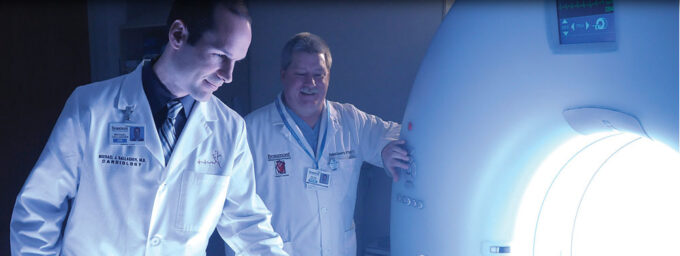Valvular Heart Disease
According to the American Heart Association, about 5 million Americans are diagnosed with valvular disease each year. It occurs when the heart valves do not work the way they should. There are four heart valves which make sure that blood always flows freely in a forward direction and that there is no backward leakage. Michigan Heart Group board-certified physicians have extensive experience in treating patients with all types of valvular heart disease including aortic and mitral valve disorders as highlighted below.
Aortic Valve Disease
Aortic valve disease is a condition in which the valve between the main pumping chamber of the heart and the main artery to the body doesn’t work properly. Aortic valve disease sometimes may be a condition present at birth or it may result from other causes.
Mitral Valve DiseaseTypes of aortic valve disease include:
- Aortic stenosis – In this condition, the aortic valve opening is narrowed.
- Aortic regurgitation – In this condition, the aortic valve doesn’t close properly, causing blood to flow backwards into the left ventricle.
In mitral valve disease, the valve between the left heart chambers (left atrium and left ventricle) do not work properly.
Diagnostic tests for valvular heart diseaseTypes of mitral valve disease include:
- Mitral valve regurgitation – In this condition, the flaps (leaflets) of the mitral valve weaken, causing blood to leak backward into the left atrium in the heart. If not treated, this can result in heart muscle damage. The most common cause of blood leakage is mitral valve prolapse, in which the leaflets bulge back into the left atrium as the heart contracts.
- Mitral valve stenosis – In this condition, the mitral valve opening is narrowed.
If your doctor suspects that you may have a deformed or narrowed heart valve, you may need to undergo several tests to confirm the diagnosis and gauge the severity of the problem. An echocardiogram is a test that uses sound waves to produce an image of your heart. In addition, a cardiac catheterization may need to be done if noninvasive tests do not provide enough information to firmly diagnose the type or severity of your heart valve condition. Michigan Heart Group’s board-certified physicians are uniquely qualified to treat patients with valvular heart disease.
To schedule your appointment, call 248-267-5050 or request your appointment online.

